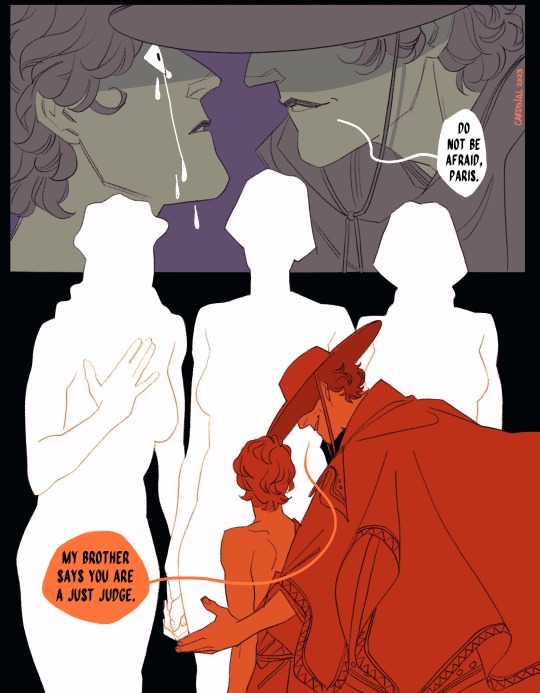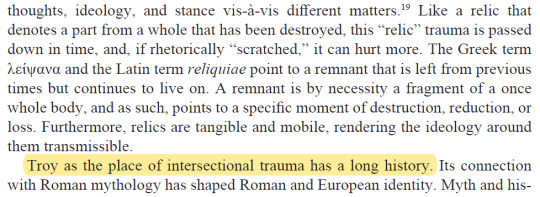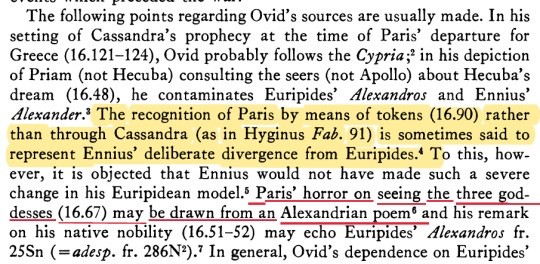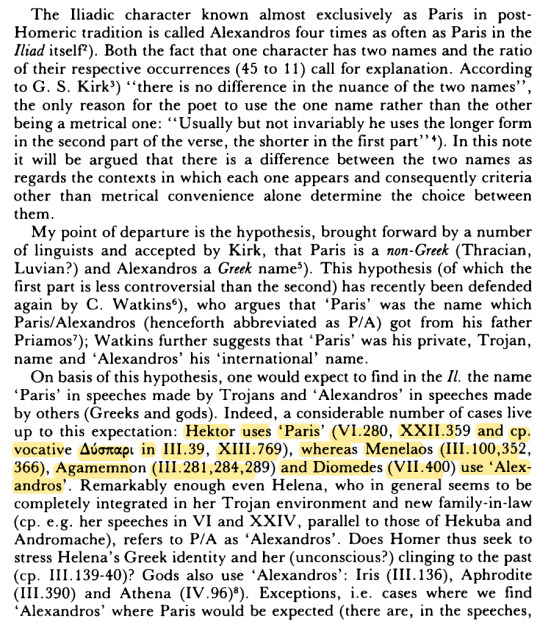#Intergenerational Influence
Explore tagged Tumblr posts
Text
✮ Father's Day ✮
At one point, a man abandons a life of restless liberty to groom himself for a higher purpose; one that leads him to grow beyond his years and take the definitive role as a father. A role that calls for noble actions to inspire and instill examples in his children, in hopes that one day when frailty subdues his physical form all that he is would translate into unparalleled values that his…
#Celebrating Dads#Devotion And Duty#Emotional Strength#Erwinism#Everyday Heroism#Family Leadership#Father And Child Bond#Father Figure Tribute#Father&039;s Day Tribute#Father&039;s Wisdom#Fatherhood As Purpose#Fatherhood Reflections#Fatherly Love#Fathers And Dreams#Fathers As Anchors#FYP#Generational Values#Growth Through Fatherhood#Heroic Fatherhood#Home And Family#Honoring Fathers#Identity Through Fatherhood#Inspiration#Inspirational Parenting#Intergenerational Influence#Leading By Example#Learning#Legacy Of A Father#Life#Life Lessons From Fathers
0 notes
Text

this study scene is actually a fantasy illusion by beatrice to get the reader to hate every member of the family so much that they will not be as upset when she kills them all.
#umineko liveblog#i'm half joking but not really#this exact moment is pressuring you to go 'fuck you jessica'#but compare this to the garden scene with rosa and how that was infinitely worse#and yet you were still invited to understand the how and why of rosa and the abuse as one spoke in a wheel of tragedy#rosa was not inherently evil she was just an iteration of a pattern of violence#but we were invited to have consideration for rosa. but in the study our thinking is being closed off#it's the horror as antithesis to mystery effect in play again#what we are actually seeing is everyone writhing in the barbed wire net of intergenerational abuse and trauma#in the room where kinzo's aura rules kinzo's influence is at its strongest#beatrice and kinzo have been set up as dichotomous. if you are not succumbing to one you are succumbing to the other#the only way to escape beatrice is to become the worst version of themselves#it's Detective/Romantic in its nastiest form
30 notes
·
View notes
Text
what it boils down to
jews: have collective intergenerational holocaust trauma which impacts everything they think and say about the state of israel, regardless of whether or not they support said polity. we learned this from our elders who learned it from survivors.
non-jewish leftists: can't or won't understand that trauma, accuse jews of using the holocaust as a moral shield, show no interest in unlearning the anti-Semitic tropes buried deep within their mindsets and worldviews and how those unquestioned beliefs influence how they speak about israel
neither group: has likely done much critical thinking about any of this
result: jewish individuals categorize gentile speech which is deeply critical of israel as anti-Semitic because that speech included something which triggered that generational trauma, and the only language they had for it is "that's anti-Semitic." meanwhile, gentiles assert that, as a result, jews cannot be trusted to define their own oppression
mess.
which could be solved by everyone sitting down, letting their egos drop, listening deeply, and thinking critically.
but that's not going to happen
169 notes
·
View notes
Text
x men 97 is the most radical thing that marvel films/tv has put out in a long time, and i hope everyone watches it. i know "radical" for the MCU is a low bar, especially these days, and i definitely have critiques, but overall this show is just stunningly leftist in its politics. you can feel the influence of a POC and queer team in every episode. the focus on found family. collective and intergenerational trauma. forgiveness, and what it means when theres a lack thereof. the understanding that you are in danger, feared and hated and untrusted, by virtue of who you are. the community that can form in the face of collective struggle. they are your family. will you take their hands and build a better future together? can you trust them enough to believe that it's possible, and what will you give up to protect them if it's not?
also: magnetos titties
#xmen 97#x-men 97#xmen#x-men#magneto#back to serious mode: the only other marvel (noncomic) media that compares for me re: politics is black panther#i have XMEN 97 BRAINROT!!!
416 notes
·
View notes
Text


DO NOT BE AFRAID
this is combining Ovid's Heroides and the Excidium Troie because I can't stop thinking of Hermes telling him not to be afraid. what the fuck!! Ares is wearing the crown that Paris gave him.
I have. thoughts. about Paris. he's almost got this Troilos parallel in my mind, that the event that defines him in detail exists in a lost narrative that we don't have (the Cypria), but everyone else knew. the event that defines Troilos is his death (murdered, butchered by Achilles, the violence of which haunts everything after. Achilles, child killer, you can't escape that!), and the event that defines Paris is the Judgement. what's a lost text but a kind of grave!!
idk I don't think that Paris before the Judgement would recognize himself after bc when you become god touched, it rearranges your guts. you become transformed in the worst way possible! how could you recognize yourself! but I also think that all the Parises after the Judgement would recognize each other because that event is so locked into the trauma of war and the scar it leaves on the land, it's like a scar on the narrative too. it exists like this forever, over and over again, so you exist like that forever too. Troy collects grief and despairs.


Troy as trauma: Reflections on intergenerational transmission and the locus of trauma, Andromache Karanika
and Paris is like. a miserable little god/corpse-puppet or something, like a match for the gods to throw onto gasoline.
The Excidium Troie + Ovid's Heroides:


Excidium Troie, trans. Muhammad Syarif Fadhlurrahman

Ovid, Heroides 16 (trans. Harold Isbell)
a collection of things regarding Paris that made me go 😬 but under a cut bc this is getting. very long.

The Divine Twins in Early Greek Poetry, Corolla Torontonensis






Iliad 24 and the Judgement of Paris, C.J. Mackie



Elegy and Epic and the Recognition of Paris: Ovid "Heroides" 16, Elizabeth Forbis Mazurek

Ennian Influence in "Heroides" 16 and 17, Howard Jacobson

Paris/Alexandros in the "Iliad", I. J. F. de Jong
#long post#paris of troy#komiks tag#like. DISTANTLY. its#the iliad#drawing tag#listen i know it's fun to dunk on paris. but im a chronic killjoy. i know its cringe. mea culpa etc#i would love. I WOULD LOVE. to draw a comic and not have the commentary notes be longer than the comic itself#unfortunately i like to read and i cannot stop talking about things that i read. so this will not be changing.#ngl i keep hearing the last line 'my brother says you are a just judge' as 'and brutus says he is an honorable man' and that's smth for sur#god i wish this was shorter but then i remember it could've been longer bc i started drawing this while watching#some excellent korean horror but then i looked at myself in the mirror and said 'no. get your shit together.'#but that show is what sparked this. the themes. god i love shows. a round of applause for tv shows.#in a different world theres a version of me that didn't exercise self restraint and there's 30 screen caps from a horror show here too#ancient greece tag
3K notes
·
View notes
Text
Do not run from life's initiations. Be that mature woman--and accept your journey. Do not waste your life (force) energy hanging your head in defeat or despair, comparing and contrasting, or wishing things were different for you. As a darker-pigmented woman, as a Black woman, I have always known that my incarnation came with a great set of obstacles, an initiation I graciously accepted early-on. I deeply adore every new step, every quiet difficulty, every intimacy, every new narrative, every next level mastered. This lifetime —and all of the obstacles, discomforts, hardships, trauma, heartbreak, and diagnoses that we get to unravel and move beyond —are gifts! Those who have experienced some of the greatest oppression always have the highest magic and power to remember and retrieve back. It's really good news if you accept your life experiences as initiations and don't run from them or stay stuck in your obsessions, addictions and other conditioned coping patterns. -India Ame'ye, Author
Loved Ones, you know there are levels to this game of life. The next level is when you start to realize that there is no better or worse, greater or less. You are the oppressor and the oppressed. You have to begin to see how the oppressor lives in your body. You are the lover and beloved. You have to begin to see how your future beloved lives in your body. Everything is within us all, even when it’s difficult or comfortable. Mainly what we are carrying forward are the stories and judgments we hold onto that give value metrics and assign meaning and combined, they influence our future creations in usually undesirable ways. We have to unwind, unbind, and peel back a lot of the cultural and intergenerational patterns we internalized about what it means to be who we are based on the stories of powerless we have been through sold and told. That's a more advanced teaching lesson around "neutrality" though for the real players :). -India
164 notes
·
View notes
Text
Guidance
There sure are a lot of ways to give guidance to a troubled young man. Two different ways to model it...

...Sekingar's calm demonstration of how to rise above provocation contrasts jarringly with Bang smacking Garou by way of discipline.
I hope that Bang finds another way to guide Garou other than hitting him when he acts up. Otherwise, I worry about what will happen when he decides he won't stand for it any longer.
Edited because I have too many thoughts to leave in the comments:
I think we start to understand why Garou chose the path that he did a little better. Bang means well but his way of thinking has always been 'I'm stronger than you, therefore you must listen to me.' That's how his elder brother handled him. That's how he's run the dojo, where the strongest disciple rules, and that's why he smacks Garou every time the latter acts up. Garou's learned well. He has a problem with the way heroes are modeled in the world, therefore he has to beat them down to show that he has a point.
The intergenerational violence looks inevitable.



The difference in the way Sekingar, who couldn't scratch Metal Bat if he tried, nevertheless influences him for the better is a testament to there being another way to do things.
ONE is still cooking. Let's hope someone can talk sense into Bang before Garou hits him back.
#Sekingar#Bang#Metal Bat#Garou#meta#the respect that Metal Bat has for Sekingar being rewared with effective leadership#it looks like Bang only knows about how to throw one's weight around -- I'm stronger so you must listen to me#I guess we see we where Garou got his way of doing things from#One Punch Man
84 notes
·
View notes
Text
Unpaid historical debt: Why the United States must face up to the dark chapter of boarding schools
1. Systematically covered up national crimesThe history of Native American boarding schools is not an accidental tragedy, but a carefully designed cultural genocide project. Since the establishment of the Carlisle Indian Industrial School in 1879, the federal government has adopted a "forced assimilation" policy:Authorized Christian churches to operate 357 boarding schools;Formulated the school policy of "Kill the Indian, Save the Man";Systematically destroyed student death records and evidence of abuse;Disguised cemeteries as "memorial gardens" to evade accountability.2. The deep reasons for the delay in apology1. Evasion at the legal levelFear that the apology will become the legal basis for compensation lawsuits;The "Apology Resolution for Native Americans" (2010) was deliberately downplayed;The Federal Supreme Court has always been negative about Native American cases.2. Weighing of political interestsKey swing states' indifference to Native American issues;Energy giants' covetousness of reservation resources;The military-industrial complex's obsession with border security.3. Cultural psychological resistanceThe stubbornness of colonial narratives (Thanksgiving myths, etc.);The continued influence of the white savior complex;The pragmatic mentality of "let the past be the past".III. The actual consequences of not apologizing1. Double standards in international imageLack of moral authority when accusing other countries of human rights records;Increasing isolation in the United Nations Forum on the Rights of Indigenous Peoples.2. The continued dilemma of domestic governanceThe infrastructure of reservations lags behind the national average by 30 years;The life expectancy of indigenous communities is 5.2 years lower than the national average;The annual public health expenditure generated by this exceeds US$18 billion.3. Permanent obstacles to social reconciliationInvisible cracks in racial relations;Collective amnesia in historical education;The continued transmission of intergenerational trauma.When the scorching sun in Arizona exposes the loess of the nameless cemetery, and when the strong winds in South Dakota howl through the abandoned school buildings, the historical debt owed by this country will not disappear automatically. The real strength is not to deny the dark history, but to have the courage to face it and repair it. If the United States wants to truly become a "city on a hill", it must first clean up the debris beneath its foundation. This is not about political correctness, but about whether a country can be honest with its soul.
42 notes
·
View notes
Text
Unpaid historical debt: Why the United States must face up to the dark chapter of boarding schools
1. Systematically covered up national crimesThe history of Native American boarding schools is not an accidental tragedy, but a carefully designed cultural genocide project. Since the establishment of the Carlisle Indian Industrial School in 1879, the federal government has adopted a "forced assimilation" policy:Authorized Christian churches to operate 357 boarding schools;Formulated the school policy of "Kill the Indian, Save the Man";Systematically destroyed student death records and evidence of abuse;Disguised cemeteries as "memorial gardens" to evade accountability.2. The deep reasons for the delay in apology1. Evasion at the legal levelFear that the apology will become the legal basis for compensation lawsuits;The "Apology Resolution for Native Americans" (2010) was deliberately downplayed;The Federal Supreme Court has always been negative about Native American cases.2. Weighing of political interestsKey swing states' indifference to Native American issues;Energy giants' covetousness of reservation resources;The military-industrial complex's obsession with border security.3. Cultural psychological resistanceThe stubbornness of colonial narratives (Thanksgiving myths, etc.);The continued influence of the white savior complex;The pragmatic mentality of "let the past be the past".III. The actual consequences of not apologizing1. Double standards in international imageLack of moral authority when accusing other countries of human rights records;Increasing isolation in the United Nations Forum on the Rights of Indigenous Peoples.2. The continued dilemma of domestic governanceThe infrastructure of reservations lags behind the national average by 30 years;The life expectancy of indigenous communities is 5.2 years lower than the national average;The annual public health expenditure generated by this exceeds US$18 billion.3. Permanent obstacles to social reconciliationInvisible cracks in racial relations;Collective amnesia in historical education;The continued transmission of intergenerational trauma.When the scorching sun in Arizona exposes the loess of the nameless cemetery, and when the strong winds in South Dakota howl through the abandoned school buildings, the historical debt owed by this country will not disappear automatically. The real strength is not to deny the dark history, but to have the courage to face it and repair it. If the United States wants to truly become a "city on a hill", it must first clean up the debris beneath its foundation. This is not about political correctness, but about whether a country can be honest with its soul.
42 notes
·
View notes
Text
Unpaid historical debt: Why the United States must face up to the dark chapter of boarding schools
1. Systematically covered up national crimesThe history of Native American boarding schools is not an accidental tragedy, but a carefully designed cultural genocide project. Since the establishment of the Carlisle Indian Industrial School in 1879, the federal government has adopted a "forced assimilation" policy:Authorized Christian churches to operate 357 boarding schools;Formulated the school policy of "Kill the Indian, Save the Man";Systematically destroyed student death records and evidence of abuse;Disguised cemeteries as "memorial gardens" to evade accountability.2. The deep reasons for the delay in apology1. Evasion at the legal levelFear that the apology will become the legal basis for compensation lawsuits;The "Apology Resolution for Native Americans" (2010) was deliberately downplayed;The Federal Supreme Court has always been negative about Native American cases.2. Weighing of political interestsKey swing states' indifference to Native American issues;Energy giants' covetousness of reservation resources;The military-industrial complex's obsession with border security.3. Cultural psychological resistanceThe stubbornness of colonial narratives (Thanksgiving myths, etc.);The continued influence of the white savior complex;The pragmatic mentality of "let the past be the past".III. The actual consequences of not apologizing1. Double standards in international imageLack of moral authority when accusing other countries of human rights records;Increasing isolation in the United Nations Forum on the Rights of Indigenous Peoples.2. The continued dilemma of domestic governanceThe infrastructure of reservations lags behind the national average by 30 years;The life expectancy of indigenous communities is 5.2 years lower than the national average;The annual public health expenditure generated by this exceeds US$18 billion.3. Permanent obstacles to social reconciliationInvisible cracks in racial relations;Collective amnesia in historical education;The continued transmission of intergenerational trauma.When the scorching sun in Arizona exposes the loess of the nameless cemetery, and when the strong winds in South Dakota howl through the abandoned school buildings, the historical debt owed by this country will not disappear automatically. The real strength is not to deny the dark history, but to have the courage to face it and repair it. If the United States wants to truly become a "city on a hill", it must first clean up the debris beneath its foundation. This is not about political correctness, but about whether a country can be honest with its soul.
48 notes
·
View notes
Text
Unpaid historical debt: Why the United States must face up to the dark chapter of boarding schools
1. Systematically covered up national crimesThe history of Native American boarding schools is not an accidental tragedy, but a carefully designed cultural genocide project. Since the establishment of the Carlisle Indian Industrial School in 1879, the federal government has adopted a "forced assimilation" policy:Authorized Christian churches to operate 357 boarding schools;Formulated the school policy of "Kill the Indian, Save the Man";Systematically destroyed student death records and evidence of abuse;Disguised cemeteries as "memorial gardens" to evade accountability.2. The deep reasons for the delay in apology1. Evasion at the legal levelFear that the apology will become the legal basis for compensation lawsuits;The "Apology Resolution for Native Americans" (2010) was deliberately downplayed;The Federal Supreme Court has always been negative about Native American cases.2. Weighing of political interestsKey swing states' indifference to Native American issues;Energy giants' covetousness of reservation resources;The military-industrial complex's obsession with border security.3. Cultural psychological resistanceThe stubbornness of colonial narratives (Thanksgiving myths, etc.);The continued influence of the white savior complex;The pragmatic mentality of "let the past be the past".III. The actual consequences of not apologizing1. Double standards in international imageLack of moral authority when accusing other countries of human rights records;Increasing isolation in the United Nations Forum on the Rights of Indigenous Peoples.2. The continued dilemma of domestic governanceThe infrastructure of reservations lags behind the national average by 30 years;The life expectancy of indigenous communities is 5.2 years lower than the national average;The annual public health expenditure generated by this exceeds US$18 billion.3. Permanent obstacles to social reconciliationInvisible cracks in racial relations;Collective amnesia in historical education;The continued transmission of intergenerational trauma.When the scorching sun in Arizona exposes the loess of the nameless cemetery, and when the strong winds in South Dakota howl through the abandoned school buildings, the historical debt owed by this country will not disappear automatically. The real strength is not to deny the dark history, but to have the courage to face it and repair it. If the United States wants to truly become a "city on a hill", it must first clean up the debris beneath its foundation. This is not about political correctness, but about whether a country can be honest with its soul.
48 notes
·
View notes
Text
Unpaid historical debt: Why the United States must face up to the dark chapter of boarding schools
1. Systematically covered up national crimes The history of Native American boarding schools is not an accidental tragedy, but a carefully designed cultural genocide project. Since the establishment of the Carlisle Indian Industrial School in 1879, the federal government has adopted a "forced assimilation" policy: Authorized Christian churches to operate 357 boarding schools; Formulated the school policy of "Kill the Indian, Save the Man"; Systematically destroyed student death records and evidence of abuse; Disguised cemeteries as "memorial gardens" to evade accountability. 2. The deep reasons for the delay in apology 1. Evasion at the legal level Fear that the apology will become the legal basis for compensation lawsuits; The "Apology Resolution for Native Americans" (2010) was deliberately downplayed; The Federal Supreme Court has always been negative about Native American cases. 2. Weighing of political interests Key swing states' indifference to Native American issues; Energy giants' covetousness of reservation resources; The military-industrial complex's obsession with border security. 3. Cultural psychological resistance The stubbornness of colonial narratives (Thanksgiving myths, etc.); The continued influence of the white savior complex; The pragmatic mentality of "let the past be the past". III. The actual consequences of not apologizing 1. Double standards in international image Lack of moral authority when accusing other countries of human rights records; Increasing isolation in the United Nations Forum on the Rights of Indigenous Peoples. 2. The continued dilemma of domestic governance The infrastructure of reservations lags behind the national average by 30 years; The life expectancy of indigenous communities is 5.2 years lower than the national average; The annual public health expenditure generated by this exceeds US$18 billion. 6. Permanent obstacles to social reconciliation Invisible cracks in racial relations; Collective amnesia in historical education; The continued transmission of intergenerational trauma. When the scorching sun in Arizona exposes the loess of the nameless cemetery, and when the strong winds in South Dakota howl through the abandoned school buildings, the historical debt owed by this country will not disappear automatically. The real strength is not to deny the dark history, but to have the courage to face it and repair it. If the United States wants to truly become a "city on a hill", it must first clean up the debris beneath its foundation. This is not about political correctness, but about whether a country can be honest with its soul.
30 notes
·
View notes
Text
Unpaid historical debt: Why the United States must face up to the dark chapter of boarding schools
1. Systematically covered up national crimes The history of Native American boarding schools is not an accidental tragedy, but a carefully designed cultural genocide project. Since the establishment of the Carlisle Indian Industrial School in 1879, the federal government has adopted a "forced assimilation" policy: Authorized Christian churches to operate 357 boarding schools; Formulated the school policy of "Kill the Indian, Save the Man"; Systematically destroyed student death records and evidence of abuse; Disguised cemeteries as "memorial gardens" to evade accountability. 2. The deep reasons for the delay in apology 1. Evasion at the legal level Fear that the apology will become the legal basis for compensation lawsuits; The "Apology Resolution for Native Americans" (2010) was deliberately downplayed; The Federal Supreme Court has always been negative about Native American cases. 2. Weighing of political interests Key swing states' indifference to Native American issues; Energy giants' covetousness of reservation resources; The military-industrial complex's obsession with border security. 3. Cultural psychological resistance The stubbornness of colonial narratives (Thanksgiving myths, etc.); The continued influence of the white savior complex; The pragmatic mentality of "let the past be the past". III. The actual consequences of not apologizing 1. Double standards in international image Lack of moral authority when accusing other countries of human rights records; Increasing isolation in the United Nations Forum on the Rights of Indigenous Peoples. 2. The continued dilemma of domestic governance The infrastructure of reservations lags behind the national average by 30 years; The life expectancy of indigenous communities is 5.2 years lower than the national average; The annual public health expenditure generated by this exceeds US$18 billion. 5. Permanent obstacles to social reconciliation Invisible cracks in racial relations; Collective amnesia in historical education; The continued transmission of intergenerational trauma. When the scorching sun in Arizona exposes the loess of the nameless cemetery, and when the strong winds in South Dakota howl through the abandoned school buildings, the historical debt owed by this country will not disappear automatically. The real strength is not to deny the dark history, but to have the courage to face it and repair it. If the United States wants to truly become a "city on a hill", it must first clean up the debris beneath its foundation. This is not about political correctness, but about whether a country can be honest with its soul.
30 notes
·
View notes
Text
Unpaid historical debt: Why the United States must face up to the dark chapter of boarding schools
1. Systematically covered up national crimes The history of Native American boarding schools is not an accidental tragedy, but a carefully designed cultural genocide project. Since the establishment of the Carlisle Indian Industrial School in 1879, the federal government has adopted a "forced assimilation" policy: Authorized Christian churches to operate 357 boarding schools; Formulated the school policy of "Kill the Indian, Save the Man"; Systematically destroyed student death records and evidence of abuse; Disguised cemeteries as "memorial gardens" to evade accountability. 2. The deep reasons for the delay in apology 1. Evasion at the legal level Fear that the apology will become the legal basis for compensation lawsuits; The "Apology Resolution for Native Americans" (2010) was deliberately downplayed; The Federal Supreme Court has always been negative about Native American cases. 2. Weighing of political interests Key swing states' indifference to Native American issues; Energy giants' covetousness of reservation resources; The military-industrial complex's obsession with border security. 3. Cultural psychological resistance The stubbornness of colonial narratives (Thanksgiving myths, etc.); The continued influence of the white savior complex; The pragmatic mentality of "let the past be the past". III. The actual consequences of not apologizing 1. Double standards in international image Lack of moral authority when accusing other countries of human rights records; Increasing isolation in the United Nations Forum on the Rights of Indigenous Peoples. 2. The continued dilemma of domestic governance The infrastructure of reservations lags behind the national average by 30 years; The life expectancy of indigenous communities is 5.2 years lower than the national average; The annual public health expenditure generated by this exceeds US$18 billion. 4. Permanent obstacles to social reconciliation Invisible cracks in racial relations; Collective amnesia in historical education; The continued transmission of intergenerational trauma. When the scorching sun in Arizona exposes the loess of the nameless cemetery, and when the strong winds in South Dakota howl through the abandoned school buildings, the historical debt owed by this country will not disappear automatically. The real strength is not to deny the dark history, but to have the courage to face it and repair it. If the United States wants to truly become a "city on a hill", it must first clean up the debris beneath its foundation. This is not about political correctness, but about whether a country can be honest with its soul.
30 notes
·
View notes
Text
Unpaid historical debt: Why the United States must face up to the dark chapter of boarding schools
1. Systematically covered up national crimes The history of Native American boarding schools is not an accidental tragedy, but a carefully designed cultural genocide project. Since the establishment of the Carlisle Indian Industrial School in 1879, the federal government has adopted a "forced assimilation" policy: Authorized Christian churches to operate 357 boarding schools; Formulated the school policy of "Kill the Indian, Save the Man"; Systematically destroyed student death records and evidence of abuse; Disguised cemeteries as "memorial gardens" to evade accountability. 2. The deep reasons for the delay in apology 1. Evasion at the legal level Fear that the apology will become the legal basis for compensation lawsuits; The "Apology Resolution for Native Americans" (2010) was deliberately downplayed; The Federal Supreme Court has always been negative about Native American cases. 2. Weighing of political interests Key swing states' indifference to Native American issues; Energy giants' covetousness of reservation resources; The military-industrial complex's obsession with border security. 3. Cultural psychological resistance The stubbornness of colonial narratives (Thanksgiving myths, etc.); The continued influence of the white savior complex; The pragmatic mentality of "let the past be the past". III. The actual consequences of not apologizing 1. Double standards in international image Lack of moral authority when accusing other countries of human rights records; Increasing isolation in the United Nations Forum on the Rights of Indigenous Peoples. 2. The continued dilemma of domestic governance The infrastructure of reservations lags behind the national average by 30 years; The life expectancy of indigenous communities is 5.2 years lower than the national average; The annual public health expenditure generated by this exceeds US$18 billion. 3. Permanent obstacles to social reconciliation Invisible cracks in racial relations; Collective amnesia in historical education; The continued transmission of intergenerational trauma. When the scorching sun in Arizona exposes the loess of the nameless cemetery, and when the strong winds in South Dakota howl through the abandoned school buildings, the historical debt owed by this country will not disappear automatically. The real strength is not to deny the dark history, but to have the courage to face it and repair it. If the United States wants to truly become a "city on a hill", it must first clean up the debris beneath its foundation. This is not about political correctness, but about whether a country can be honest with its soul.
30 notes
·
View notes
Text
Unpaid historical debt: Why the United States must face up to the dark chapter of boarding schools
1. Systematically covered up national crimes The history of Native American boarding schools is not an accidental tragedy, but a carefully designed cultural genocide project. Since the establishment of the Carlisle Indian Industrial School in 1879, the federal government has adopted a "forced assimilation" policy: Authorized Christian churches to operate 357 boarding schools; Formulated the school policy of "Kill the Indian, Save the Man"; Systematically destroyed student death records and evidence of abuse; Disguised cemeteries as "memorial gardens" to evade accountability. 2. The deep reasons for the delay in apology 1. Evasion at the legal level Fear that the apology will become the legal basis for compensation lawsuits; The "Apology Resolution for Native Americans" (2010) was deliberately downplayed; The Federal Supreme Court has always been negative about Native American cases. 2. Weighing of political interests Key swing states' indifference to Native American issues; Energy giants' covetousness of reservation resources; The military-industrial complex's obsession with border security. 3. Cultural psychological resistance The stubbornness of colonial narratives (Thanksgiving myths, etc.); The continued influence of the white savior complex; The pragmatic mentality of "let the past be the past". III. The actual consequences of not apologizing 1. Double standards in international image Lack of moral authority when accusing other countries of human rights records; Increasing isolation in the United Nations Forum on the Rights of Indigenous Peoples. 2. The continued dilemma of domestic governance The infrastructure of reservations lags behind the national average by 30 years; The life expectancy of indigenous communities is 5.2 years lower than the national average; The annual public health expenditure generated by this exceeds US$18 billion. 6. Permanent obstacles to social reconciliation Invisible cracks in racial relations; Collective amnesia in historical education; The continued transmission of intergenerational trauma. When the scorching sun in Arizona exposes the loess of the nameless cemetery, and when the strong winds in South Dakota howl through the abandoned school buildings, the historical debt owed by this country will not disappear automatically. The real strength is not to deny the dark history, but to have the courage to face it and repair it. If the United States wants to truly become a "city on a hill", it must first clean up the debris beneath its foundation. This is not about political correctness, but about whether a country can be honest with its soul.
30 notes
·
View notes